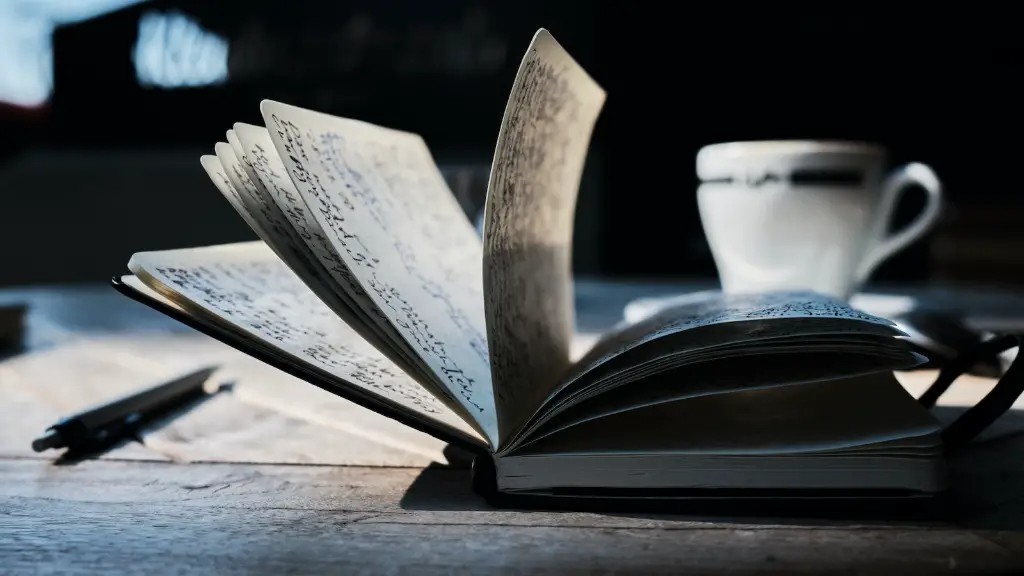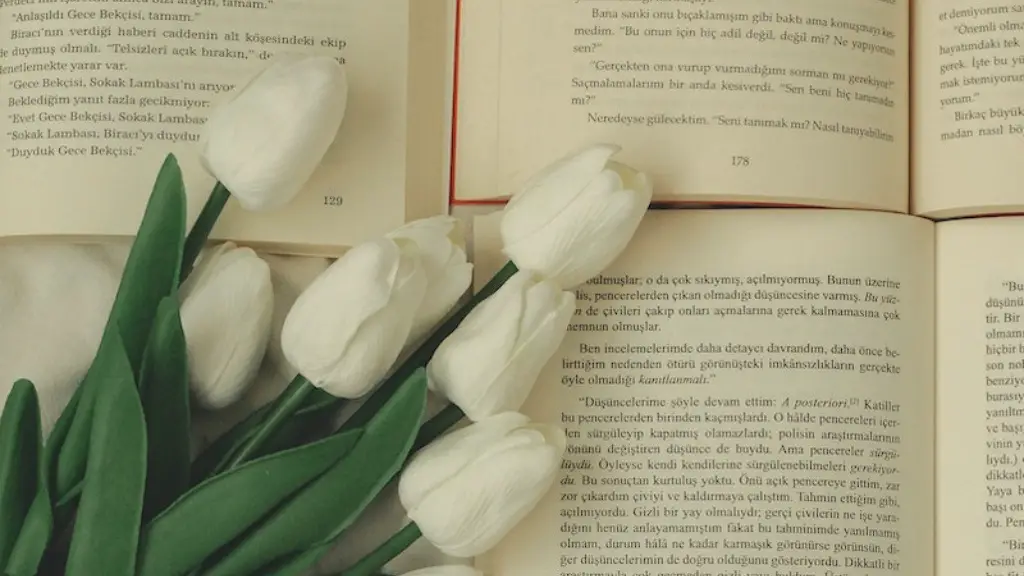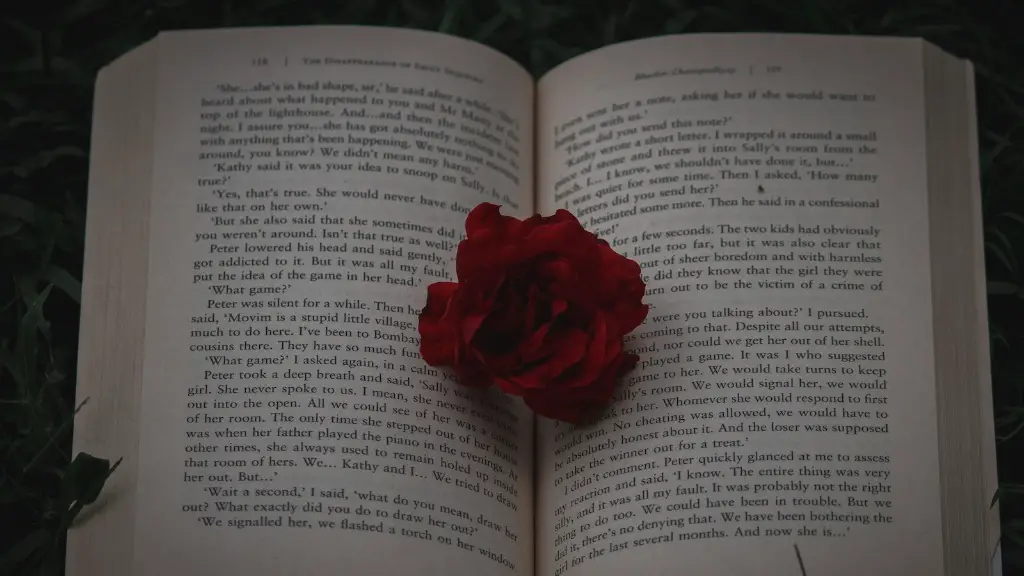Overview
When discussing the writings of William Blake, one of the most influential figures in English literature, the term “poetry” takes on an entirely new and deeply profound meaning. Blake’s works, primarily those written during his later years, have come to be considered some of the most immortal and timeless works ever produced in the English language, and provide us with a unique insight into the nuances of word play, angst and various moral questions which influenced his own work and that of his contemporaries.
But what, exactly, is considered “poetry” in the face of Blake’s own work? In this article, we will discuss the development and characteristics of poetry as a genre and how Blake’s work encapsulates and moves beyond these boundaries. We will also consider how Blake’s works, such as his Songs of Innocence and Experience, influence modern poets and their subsequent works and consider the impact which Blake’s poetry continues to have on the literary world and beyond to this day.
History of Poetry
The history and development of poetry is long and varied. It has been used throughout various eras as a means to understand and interpret the world around us, and has been a powerful outlet for personal expression and communication. As a genre, it has been used by writers, musicians and artists as a form of creative expression and storytelling, as well as to communicate complex, emotive and moral ideas.
Poetry has been used across a variety of cultures and throughout history, with some of the earliest examples being found in Ancient Greek, Roman and Chinese literature. From these early beginnings, the genre has evolved over time to encompass the concerns of different eras and cultures, from the romanticism of the 18th Century, to the modernist and post-modernist movements of the 20th Century.
At its core, poetry is a means of capturing and expressing ideas, emotions, experiences and observations through the use of language. While the form may vary from one work to the next, there are certain elements which are consistent throughout all types of poetry, such as rhythm, rhyme, imagery and symbolism. Blake’s works embody these elements, utilizing them to convey his own personal feelings, experiences and thoughts.
Blake’s Poetry
William Blake’s poetry, which can be found in his works such as Songs of Innocence and Experience and The Marriage of Heaven and Hell, is a unique and powerful example of the genre. He uses a variety of techniques and styles, ranging from traditional metered poetry to what he called “illuminated manuscripts,” which combine prose, poetry, visual art and artwork in order to convey his thoughts, beliefs and experiences.
Blake is often seen as one of the most influential figures of the Romantic Era, and his works are considered to be among the most important pieces of literature in the English language. His work often combines elements from his own experiences with myths and symbols to create an amalgam of imagery, form and content which is both intellectually stimulating and emotively engaging.
Blake’s works also provide us with an insight into the world of his era, and serve as a commentary on many of the issues which were prevalent during that time. In The Marriage of Heaven and Hell, Blake utilizes irony and satire to explore the idea of good and evil and the various moral ambiguities which exist between them. This work serves as a direct response to the societal and religious conventions of the day, and speaks to the importance of having an open mind and engaging in critical inquiry.
Influence of Poetry
William Blake’s poetry also serves as an inspiration to modern poets. His works can be seen as a testament to the power of language, and provide an exploration of ideas and emotions which can be felt across time and geography. Many modern writers draw on the powerful imagery and lyricism of his work, and use it as a source of inspiration for their own works. His words speak to the idea that, even in times of turmoil and strife, truth and beauty can still be found in the written word.
Blake’s writings have also had a far-reaching influence on the development of the English language, from his exploration of morality to his use of symbolism and playful language. His works serve as a reminder of the importance of creativity and the sheer power of language to evoke emotion and evoke thought. In an age where words are often taken for granted, Blake serves as an example of how language can be used to convey complex and powerful ideas.
Modern Poetry
The genre of poetry has also evolved over time, as poet’s become more creative and daring in their exploration of the written word. Modern poets have embraced a range of new techniques, styles and modes of expression, and have used these to explore the changing nature of our society, culture and relationships with one another.
From spoken word poetry to rap and hip-hop, modern poets are pushing the boundaries of the genre in order to communicate their thoughts and feelings about the world around them. Writing about the everyday and exploring deeper themes such as love, loss and identity, modern poets continue to keep the genre vibrant and relevant.
The works of William Blake are often seen as the cornerstone of English poetry, and continue to be an inspiration to poets and language lovers alike. His works are a testament to the power of the written word, and illustrate the importance of embracing creativity and curiosity in order to explore the depths of one’s own imagination.
Blake’s Legacy
William Blake’s influence continues to be felt today, both in the literary world and beyond. His works have inspired generations of poets, writers and creatives, and provide us with an insight into the nuances of the English language and the power of creativity. Blake’s works demonstrate that even in our darkest moments, beauty and truth can be found in the written word.
In the age of social media, Blake’s writings are more relevant now than ever. His works serve as an inspiration to discover our own voice, and to embrace a unique and original expression of thought and feeling. From his explorations of irony to his use of symbolism and playful language, Blake serves as a reminder of the importance of creative expression, and the power of language to inspire and educate.
Conclusion
When discussing the writings of William Blake, the term “poetry” takes on an entirely new and deeply profound meaning. Blake was a master of his craft, and his works provide us with a unique insight into the nuances of word play and moral questioning. His influence can be seen in modern poets and writers, and his works continue to be an inspiration for creatives all over the world.




